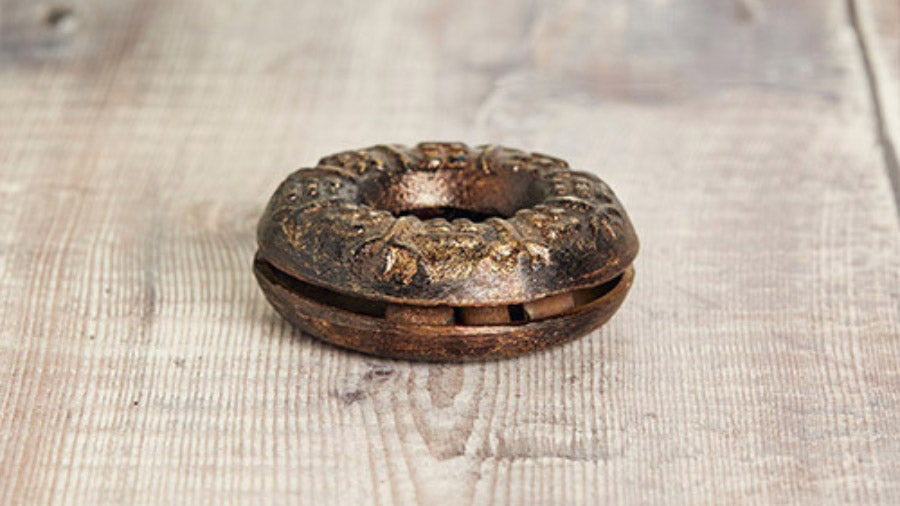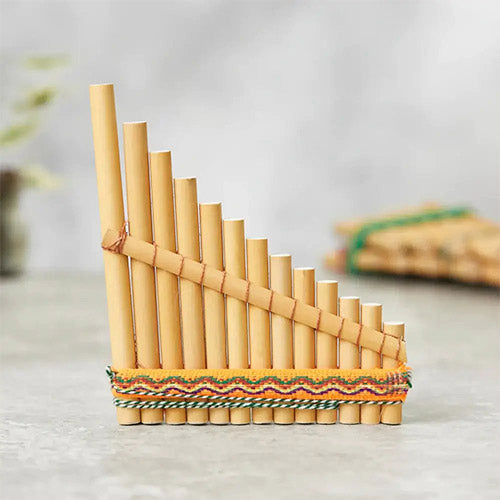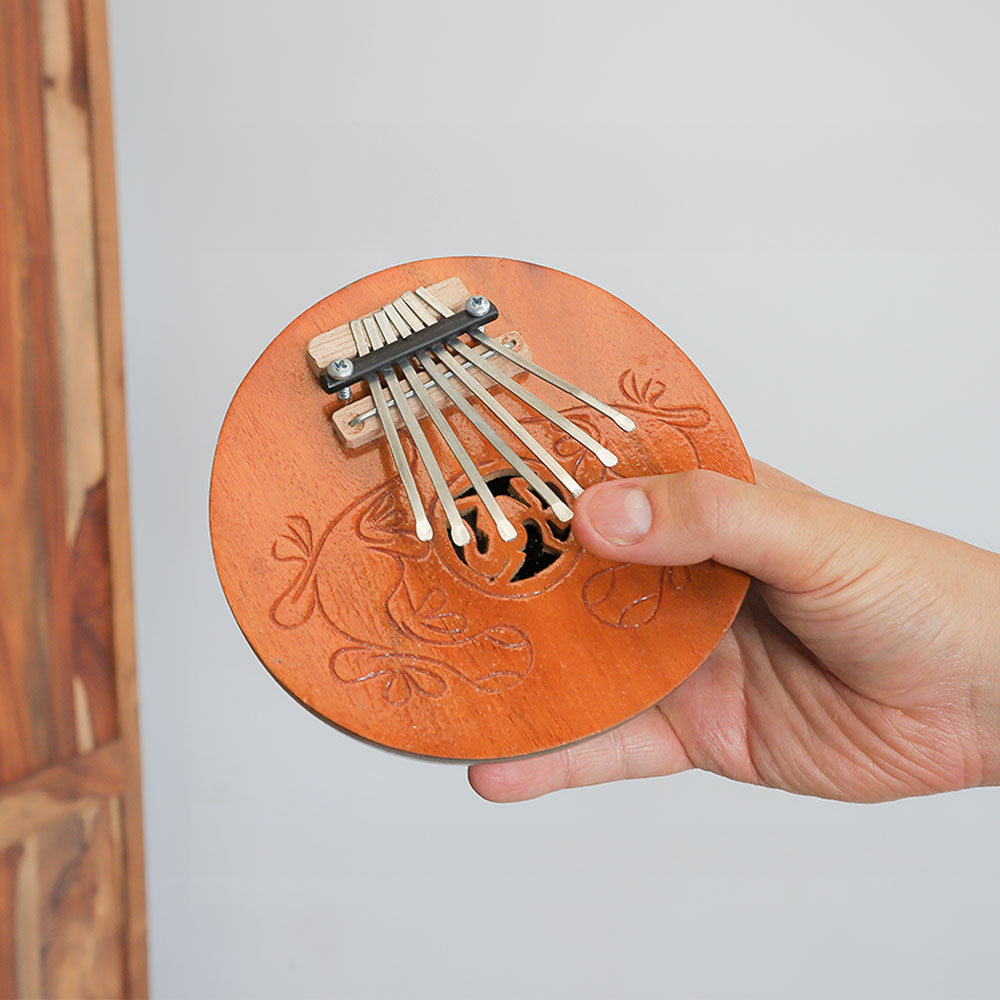A fingerbell is a small, wearable bell instrument typically worn on the finger or held between the fingers, used to produce a bright, delicate ringing sound with minimal effort. It is commonly used in ceremonial, traditional, and meditative music settings. Dancers, musicians, and spiritual practitioners often use fingerbells to punctuate movement or enhance rhythm with a shimmering, high-pitched tone. They are especially well known in countries like India and Nepal, where they are integrated into devotional rituals, classical dance forms, and healing practices.
History of Fingerbell
The fingerbell has ancient origins, with roots tracing back to religious and cultural practices in South Asia, particularly India and Nepal. While the exact inventor is unknown, fingerbells have been used for centuries in Hindu and Buddhist ceremonies as ritual instruments to mark time or invoke focus. Their portability and simplicity made them ideal for accompanying mantras, meditations, and temple dances. Over time, variations of the fingerbell have spread across Asia, each adapted to local spiritual and artistic traditions.
Types of Fingerbell
Fingerbells come in several forms, including single bells worn on rings, twin bells attached by a string or metal strip, and hand-held clusters that chime when shaken. Common materials include brass, bronze, or copper alloys, chosen for their clear, resonant tone. Some fingerbells are ornately decorated for ceremonial use, while others are plain and functional for music or movement. Their key characteristics include a lightweight build, ease of control, and a bright, piercing tone that cuts through ambient sound, making them popular in both traditional and contemporary settings.
Meo Fingerbell

★★★★★ - “Product is awesome. I love the product. I was having trouble to check out and these guys helped me to check out easily. Shipping was good and it came early too. I recommend it”. - Verified Buyer
The Meo Fingerbell is a handcrafted metal instrument worn like a ring, letting you create unique tones with a simple flick or shake of your hand. Compact yet expressive, it's perfect for musicians, sound therapy, meditation, or just playful exploration. Made in Vietnam from sustainable cast iron, this fair trade piece blends creativity with eco-conscious craftsmanship. Measuring 6 cm by 2 cm and weighing 100 g, it’s easy to use and ideal for both adults and supervised children. Handle with care, as it may contain small parts or sharp edges.
Purchase the Meo Fingerbell Here.
Grello Fingerbell

The Grello Fingerbell is a rare thumb-mounted percussion instrument from Ghana, made of two iron clackers that create a sharp, rhythmic tone when tapped together. Worn on the thumb and shaped like a leaf, it offers a unique way to connect with the rich traditions of African music. Handmade, fair trade, and eco-friendly, it's both a cultural treasure and a fun musical gift. At 8 cm by 4.5 cm and 200 g, it's suitable for adults and supervised children over five. Handle with care, as it may contain small parts or edges, and clean with a cloth to keep it performance-ready.
Purchase the Grello Fingerbell Here.
Tips for Choosing the Right Fingerbell
When choosing the right Fingerbell, consider its size, material, and intended use. Smaller models like the Meo Fingerbell are ideal for light tones and gentle movement, while larger or double-clacker types like the Grello create sharper, more rhythmic sounds suited for dynamic performances. Think about your musical style—whether for meditation, cultural percussion, or casual play—and make sure it fits comfortably on your finger. Fingerbells are suitable for all ages, from sound therapy practitioners to curious beginners and seasoned percussionists wanting to add texture to their rhythm.
The Pros and Cons of Buying a Second-Hand Fingerbell
Buying a second-hand Fingerbell can be budget-friendly and may carry unique tonal qualities from age and wear. Vintage models, especially handmade ones, might offer craftsmanship no longer found in mass-produced versions. However, they could come with issues like rust, loose fittings, or loss of resonance. New Fingerbells ensure clean sound, reliability, and often fair-trade craftsmanship, especially if handmade in places like Vietnam or Ghana. If you're after longevity, aesthetics, or gifting potential, a new, ethically made Fingerbell may be your best option. Choose based on your priorities—authentic character or pristine condition.
Unique Fingerbell Accessories
Enhance your Fingerbell experience with accessories like adjustable finger straps for better fit, soft pouches for protection, and display stands if you collect multiple pieces. While metal Fingerbells like the Meo or Grello don’t require oiling, regular wiping with a soft cloth helps maintain shine and prevent rust. If you’re using a wooden variant, a small amount of wood-safe oil can preserve its finish. You can also pair the Fingerbell with other small percussion instruments—like shakers or hand drums—for layered rhythms. A carrying case is useful for gigging or travel to keep your instrument safe.
Fingerbell in Popular Music
Fingerbells are especially popular in traditional African music, meditation, and experimental or world music genres. The Grello Fingerbell, for instance, has roots in Ghanaian rhythms and can be heard in West African drumming ensembles. In more contemporary settings, fingerbells have been used in ambient and acoustic performances to add shimmering accents. While not always centerstage, they’ve been embraced by percussionists in global music circles for their portability and crisp, cutting tone. Their subtle charm makes them ideal for layering in both live and studio settings, especially in fusion and folk-inspired compositions.







